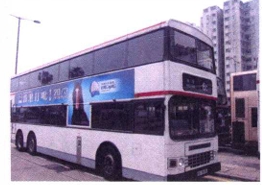





kǎo shì ①考试
shāng diàn ②商店
jī chǎng ③机场
lù ④路
jiào shì ⑤教室
shí jiān ⑥时间
 ①______
①______
 ②______
②______
 ③______
③______
 ④______
④______
课文 Text
1 在家里 At home 07-1
Dàwèi huílai le ma?
A: 大卫回来了吗?
Méiyǒu, tā hái zài jiàoshì xuéxí ne.
B: 没有,他还在教室学习呢。
Yǐjīng jiǔ diǎn duō le, tā zěnme hái zài xuéxí?
A: 已经9点多了,他怎么还在学习?
Míngtiān yǒu kǎoshì, tā shuō jīntiān yào hǎohǎo zhǔnbèi.
B: 明天 有考试,他说今天要好好 准备。

English Version
A: Is David back?
B: No. He is still studying in the classroom.
A: It’s after 9 o’clock. Why is he still studying?
B: There will be a test tomorrow. He said he’ll work hard in preparation for it today.
New Word
1. 教室 jiàoshì n. classroom
2 去机场的路上 On the way to the airport 07-2

Nǐ xiànzài zài nǎr ne?
A: 你现在在哪儿呢?
Zài qù jīchǎng de lùshang. Nǐ yǐjīng dàole ma?
B: 在去机场的路上。你已经到了吗?
Wǒ xià fēijī le. Nǐ hái yǒu duō cháng shíjiān néng dào zhèr?
A: 我下飞机了。你还有多长时间能到这儿?
Èrshí fēnzhōng jiù dào.
B: 二十分钟就到。
English Version
A: Where are you now?
B: I’m on the way to the airport. Have you arrived?
A: I’ve got off the plane. How many more minutes do you need to get here?
B: In 20 minutes.
New Words
2. 机场 jīchǎng n. airport
3. 路 lù n. road, path, way
3 在健身房 In the gym 07 – 3
Nǐ jiā lí gōngsī yuǎn ma?
A: 你家离公司 远吗?
Hěn yuǎn, zuò gōnggòng qìchē yào yí ge duō xiǎoshí ne!
B: 很 远,坐 公共 汽车要一个多 小时呢!
Zuò gōnggòng qìchē tài màn le, nǐ zěnme bu kāichē?
A: 坐 公共 汽车太慢了,你怎么不开车?
Kāi chē yě bù kuài, lùshang chē tài duō le!
B: 开 车也不快,路上 车太多了!

English Version
A: Do you live far from your company?
B: Yes, very far. It takes more than one hour by bus.
A: Buses are slow. Why don’t you drive?
B: It’s not fast either. There are too many cars on the road.
New Words
4. 离 lí v. to be away from
5. 公司 gōngsī n. company, firm
6. 远 yuǎn adj. far, distant
7. 公共汽车 gōnggòng qìchē bus
8. 小时 xiǎoshí n. hour
9. 慢 màn adj. slow
10. 快 kuài adj. quick, fast
4 在路上 On the way 07 – 4
Jīntiān wǎnshang wǒmen yìqǐ chī fàn ba, gěi nǐ guò shēngrì.
A: 今天 晚上 我们一起吃饭吧,给你过生日。
Jīntiān? Lí wǒ de shēngrì hái yǒu yí ge duō xīngqī ne!
B: 今天? 离我的生日还有一个多 星期呢!
Xià ge xīngqī wǒ yào qù Běijīng, jīntiān guò ba.
A: 下个星期我要去北京,今天过吧。
Hǎo ba, lí zhèr bù yuǎn yǒu yí ge Zhōngguó fànguǎn,
B: 好吧,离这儿不远有一个 中国 饭馆,
zǒu jǐ fēnzhōng jiù dào le.
走几分钟 就到了。

English Version
A: Let’s have dinner together tonight to celebrate your birthday.
B: Tonight? My birthday is more than one week later.
A: Next week I’ll go to Beijing. Let’s celebrate it today.
B: Fine. There’s a Chinese restaurant nearby, only a few minutes’ walk away.
New Words
*11. 过 guò v. to pass (time), to spend (time)
12. 走 zǒu v. to walk
13. 到 dào v. to arrive, to reach
表示动作或状态的延续,否定式用 “还没”。例如:
It indicates the continuation of an action or a state. Its negative form is “还没”. For example:
- 八点了,他还在睡觉。
- 你怎么还没吃饭?
- 他还在教室学习呢。
强调说话人认为事情发生得早,进行得快、顺利。例如:
It is used for emphasis, indicating that the speaker thinks something happened early or went fast and well. For example:
| Subject | 就……了 |
|---|---|
| 同学们 | 七点半就来教室了。 |
| 我 | 坐飞机一个半小时就到北京了。 |
| (我) | 二十分钟就到。 |
用来表示处所、时间、目的的距离。例如:
It indicates the distance from a place, moment or purpose. For example:
| A | 离 | B | …… |
|---|---|---|---|
| 我家 | 离 | 学校 | 很远。 |
| 学校 | 离 | 机场 | 有20多公里。 |
| 离 | 我的生日 | 还有一个多星期呢! |
用于陈述句句尾,可用在形容词谓语句和动词谓语句后边,表示确认事实,使对方信服,含有夸张的语气。例如:
It is used at the end of a declarative sentence or after a sentence with an adjectival or verbal predicate to confirm a fact and convince someone in an exaggerative mood. For example:
(1)八点上课,时间还早呢。
(2)医院离我们这儿还远呢。
(3)坐公共汽车要一个多小时呢!

评论